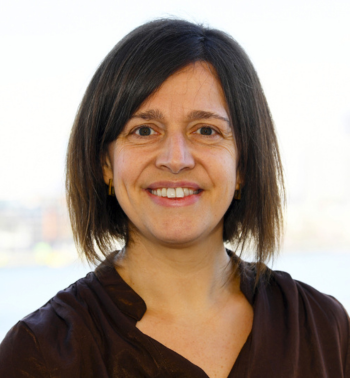7 July 2025
What is your role within King’s Health Partners?
As Professor of Cancer Epidemiology, I lead the TOUR (Transforming cancer OUtcomes through Research) team, which bridges academic research and clinical practice across King’s Health Partners (KHP). I co-direct the Guy’s Cancer Real World Evidence (RWE) Programme with Guy’s and St Thomas NHS Foundation Trust, integrating patient-reported outcomes and real-world data into service development. I also represent KHP in national and international collaborations, including the European Organisation for Research and Treatment of Cancer (EORTC) Quality of Life Group.
My role involves strategic leadership, research supervision, and fostering partnerships that enhance translational cancer research and improve patient-centred care across the KHP network.
What do you enjoy most about your role?
What I enjoy most is the opportunity to work at the intersection of research, clinical care, and education. I find it incredibly rewarding to lead a multidisciplinary team that translates complex data into meaningful improvements in cancer care. Supporting early-career researchers and seeing their growth is a particular highlight.
I also value the collaborative nature of my work—whether it’s co-developing international quality of life tools or embedding patient voices into research. Every day brings a new challenge, and the impact we can make on real-world outcomes keeps me motivated and inspired.
What inspired you to get into this work?
My academic journey began with a strong interest in biomedical sciences and public health, which evolved into a passion for cancer epidemiology.
I was particularly drawn to the idea of using data to improve patient outcomes and reduce inequalities in care. Working with patients and clinicians early in my career showed me the importance of integrating research into everyday clinical practice. This inspired me to focus on real-world evidence and patient-reported outcomes—areas where research can directly influence how care is delivered and experienced.
That translational impact continues to drive my work today.
How does your work impact the lives of patients/communities?
Our work directly informs how cancer services are designed and delivered. Through Guy’s Cancer RWE Programme, we analyse real-world data to identify gaps in care, evaluate new treatments, and support service planning. Our quality of life research ensures that patient perspectives are embedded in clinical decision-making, helping to personalise care and improve outcomes.
We also lead inclusive public involvement initiatives, ensuring underrepresented voices shape research priorities. Whether through Patient Reported Outcomes Measures (PROMS) implementation or policy engagement, our goal is to make cancer care more equitable, responsive, and aligned with what matters most to patients and communities.
What are the benefits of working in partnership?
Partnerships are essential to everything we do. Working across institutions—whether with Guy’s and St Thomas NHS FT or international collaborators like the EORTC—enables us to pool expertise, share data, and scale our impact. These collaborations allow us to co-develop tools, secure funding, and implement research findings in real-world settings.
Within King’s Health Partners, our integrated approach ensures that research is not siloed, but embedded in clinical pathways. Partnerships also foster innovation, support training, and amplify patient voices. Ultimately, they help us deliver research that is more relevant, inclusive, and impactful.
What would be your one career top tip?
Build your career around purpose, not just progression. Find a question or challenge that truly motivates you, and let that guide your choices. Be open to collaboration and learn from people across disciplines—you’ll grow faster and make a bigger impact.
Also, invest in mentoring others; it’s one of the most rewarding parts of academic life.
Finally, don’t be afraid to lead from where you are. Whether you’re a student or a senior academic, your ideas and values can shape the future of research and care.





